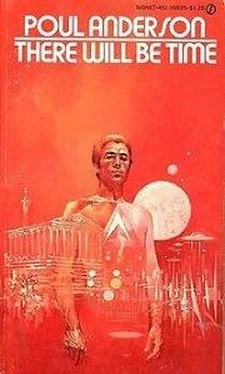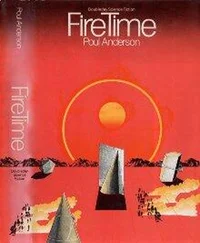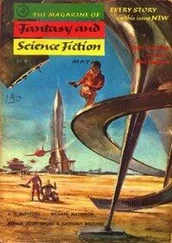Poul Anderson - There Will Be Time
Здесь есть возможность читать онлайн «Poul Anderson - There Will Be Time» весь текст электронной книги совершенно бесплатно (целиком полную версию без сокращений). В некоторых случаях можно слушать аудио, скачать через торрент в формате fb2 и присутствует краткое содержание. Год выпуска: 1972, Издательство: Doubleday, Жанр: Фантастика и фэнтези, на английском языке. Описание произведения, (предисловие) а так же отзывы посетителей доступны на портале библиотеки ЛибКат.
- Название:There Will Be Time
- Автор:
- Издательство:Doubleday
- Жанр:
- Год:1972
- ISBN:нет данных
- Рейтинг книги:5 / 5. Голосов: 1
-
Избранное:Добавить в избранное
- Отзывы:
-
Ваша оценка:
- 100
- 1
- 2
- 3
- 4
- 5
There Will Be Time: краткое содержание, описание и аннотация
Предлагаем к чтению аннотацию, описание, краткое содержание или предисловие (зависит от того, что написал сам автор книги «There Will Be Time»). Если вы не нашли необходимую информацию о книге — напишите в комментариях, мы постараемся отыскать её.
Nominated for Hugo Award for Best Novel in 1973.
There Will Be Time — читать онлайн бесплатно полную книгу (весь текст) целиком
Ниже представлен текст книги, разбитый по страницам. Система сохранения места последней прочитанной страницы, позволяет с удобством читать онлайн бесплатно книгу «There Will Be Time», без необходимости каждый раз заново искать на чём Вы остановились. Поставьте закладку, и сможете в любой момент перейти на страницу, на которой закончили чтение.
Интервал:
Закладка:
Havig appreciated the strategy. “As far as I’ve been able to find out, sir, which isn’t much,” he said, “the, uh, the Maurai culture is right now forming in the Pacific basin. Anybody from its later stages, coming downtime, would doubtless be more interested in that genesis than in the politics of obscure, impoverished barbarians.”
“You do your Americans an injustice,” Wallis reproved him. “You’re right, of course, from the Maurai standpoint. But actually, our people have had a run of bad luck.”
There was some truth in that, Havig must agree. Parts of Oceania had been too unimportant for overdevelopment or for strikes by the superweapons; and those enormous waters were less corrupted than seas elsewhere, more quickly self-cleansed after man became again a rare species. Yet the inhabitants were no simple and simpering dwellers in Eden. Books had been printed in quantities too huge, distributed over regions too wide, for utter loss of any significant information. To a lesser degree, the same was true of much technological apparatus.
North America, Europe, parts of Asia and South America, fewer parts of Africa, hit bottom because they were overextended. Let the industrial-agricultural-medical complexes they had built be paralyzed for the shortest of whiles, and people would begin dying by millions. The scramble of survivors for survival would bring everything else down in wreck.
Now even in such territories, knowledge was preserved: by an oasis of order here, a half-religiously venerated community there. At last, theoretically, it could diffuse to the new barbarians, who would pass it on to the new savages … theoretically. Practice said otherwise. The old civilization had stripped the world too bare.
You could, for example, log a virgin forest, mine a virgin Mesabi, pump a virgin oil field, by primitive methods. Using your gains from this, you could go on to build a larger and more sophisticated plant capable of more intricate operations. As resources dwindled, it could replace lumber with plastics, squeeze iron out of taconite, scour the entire planet for petroleum.
But by the time of the Judgment, this had been done. That combination of machines, trained personnel, well-heeled consumers and taxpayers, went under and was not to be reconstructed.
The data needed for an industrial restoration could be found. The natural materials could not.
“Don’t you think, sir,” Havig dared say, “by their development of technological alternatives, the Maurai and their allies will do a service?”
“Up to a point, yes. I have to give the bastards that,” Wallis growled. His cigar jabbed the air. “But that’s as far as it goes. Far enough to put them hard in the saddle, and not an inch more. We’re learning about their actual suppression of new developments. You will likewise.”
He seemed to want to change the subject, for he continued:
“Anyhow, as to our organization here. My key men haven’t stuck around in uninterrupted normal time, and I less. We skip ahead-overlapping-to keep leadership continuous. And we’re doing well. Things snowball for us, in past, present, and future alike.
“By now we’ve hundreds of agents, plus thousands of devoted commoners. We ruled over what used to be a couple of whole states, though of course our traffic is more in time than space. Mainly we govern through common-born deputies. When you can travel along the lifespan of a promising boy, you can make a fine and trusty man out of him-especially when he knows he’ll never have any secrets from you, nor any safety.
“But don’t get me wrong. I repeat, we aren’t monsters or parasites. Sometimes we do have to get rough. But our aim is always to put the world back on the path God laid out for it.”
He leaned forward. “And we will,” he almost whispered.
“I’ve traveled beyond. A thousand years hence, I’ve seen — “Are you with us?”
8
“BY AND LARGE, the next several months were good,” Havig would relate (would have related) to me. “However, I stayed cautious. For instance, I hedged on giving out exact biographical data. And I passed the chronolog off as a radionic detector and transmitter, built in case visitors to the past had such gear in use. Wallis said he doubted they did and lost interest. I found a hiding place for it. If they were the kind of people in the Eyrie I hoped they were, they’d understand when I finally confessed my hesitation about giving them something this helpful.”
“What made you wary?” I asked.
His thin features drew into a scowl. “Oh… minor details at first. Like Wallis’s whole style. Though, true, I didn’t have a proper chance to get acquainted, because he soon hopped forward to the following year. Think how that lengthens and strengthens power!”
“Unless his subordinates conspire against him meanwhile,” I suggested.
He shook his head. “Not in this case. He knows who’s certainly loyal, among both his agents and his hand-reared commoners. A hard core of travelers shuttles in and out through time with him, on a complicated pattern which always has one of them clearly in charge.
“Besides, how’d you brew a conspiracy among meek commoner farmers and laborers, arrogant commoner soldiers and officials, or the travelers themselves? They’re a wildly diverse and polyglot band, those I met in the castle and those stationed in outlying areas. Nearly all from post-medieval Western civilization—”
“Why?” I wondered. “Surely the rest of history has possibilities in proportion.”
“Yeah, and Wallis said he did mean to extend the range of his recruiters. But the difficulties of long temporal trips, language and culture barriers, training whomever you brought back, seemed too great thus far. His Jerusalem search was an experiment, and aside from me had a disappointing result.”
Havig shrugged. “To return to the main question,” he said, “American English is the Eyrie’s official language, which everybody’s required to learn. But even so, with most I could never communicate freely. Besides accents, our minds were too different. From my angle, the majority of them were ruffians. From theirs, I was a sissy, or else too sly-acting for comfort. And they had, they have their mutual jealousies and suspicions. Simply being together doesn’t stop them regarding each other as Limeys, Frogs, Boches, Guineas, the hereditary enemy. How would you give them a common cause?
“And, finally, why on Earth should they mutiny? Only a few are idealists of any kind; that’s a rare quality, remember. But we lived — they live — like fighting cocks. The best of food, drink, time-imported luxuries, servants, bed partners, sports, liberal furloughs to the past, if reasonable precautions are observed, and ample pocket money provided. The work isn’t hard. Those who need it get training in what history and technology are appropriate to their talents. The able-bodied learn commando skills. The rest become clerks, temporal porters, administrators, or researchers if they have the brains for it. That was our routine, by no means a dull one. The work itself was fascinating — or would be, I knew, as soon as my superiors decided I was properly trained. Think: a scout in time!
“No, on the whole I had no serious complaints. At first.”
“You don’t seem to have found your associates really congenial, however,” I said.
“A few I did,” he replied. “Wallis himself could charm as well as domineer: in his fashion, a spellbinding conversationalist, what with everything he’d experienced. His top lieutenant, Austin Caldwell, gray now but whipcord-tough still, crack shot and horseman, epic whiskey drinker, he had the same size fund of stories to draw on, plus more humor; in addition, he was a friendly soul who went out of his way to make my beginnings easier. Reuel Orrick, that former carnival magician, a delightful old rogue. Jerry Jennings, hardly more than an English schoolboy, desperately trying to find a new dream after his old ones broke apart in the trenches, 1918. A few more. And then Leonce.” He smiled, though it was a haunted smile. “Especially Leonce.”
Читать дальшеИнтервал:
Закладка:
Похожие книги на «There Will Be Time»
Представляем Вашему вниманию похожие книги на «There Will Be Time» списком для выбора. Мы отобрали схожую по названию и смыслу литературу в надежде предоставить читателям больше вариантов отыскать новые, интересные, ещё непрочитанные произведения.
Обсуждение, отзывы о книге «There Will Be Time» и просто собственные мнения читателей. Оставьте ваши комментарии, напишите, что Вы думаете о произведении, его смысле или главных героях. Укажите что конкретно понравилось, а что нет, и почему Вы так считаете.












